Exploring the Role of AI in Psychology
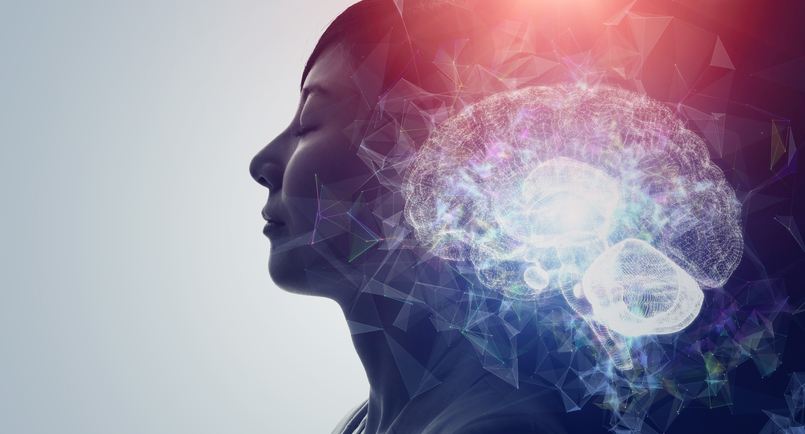 Psychology is the science of the mind. It explores emotion, cognition, behavior, and personality.
Psychology is the science of the mind. It explores emotion, cognition, behavior, and personality.
It turns out that artificial intelligence is interested in many of those same subjects. And in their pursuit of the keys to developing AI, scientists inevitable turn to the field of psychology to help them understand and unlock the mysteries of thought and reasoning.
This is an explosive combination of factors for PsyD students and practicing psychologists today. Not only will AI bring new innovation to clinical therapy, research, and experimentation in the field of psychology itself, but psychology will play a critical part in how AI is developed and understood in society.
The Mutual Growth of Artificial Intelligence and Psychology
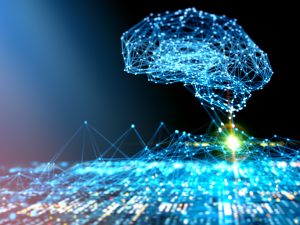 Psychologists and PsyD research students have a fascinating dual role to play in the development of artificial intelligence.
Psychologists and PsyD research students have a fascinating dual role to play in the development of artificial intelligence.
While psychology will be upended just like any other industry where new AI abilities will apply, AI itself has a considerable reliance on psychology and psychological studies.
The acceptance of AI tools is rooted in human psychological tendencies. Anthropomorphism, the baked-in tendency to see human characteristics in non-human entities from trees to technology, is key to the current success of chatbots like ChatGPT.
And the very design of those AI systems is directly inspired by research from the world of psychology. Modern AI is largely powered by deep learning neural networks, modeled on the way that early researchers believed that the human brain itself operated.
Some of the earliest applications of chatbots, including the very first one, ELIZA, were in psychotherapy.
The Applications of AI in Psychology Are Only Rivaled by the Applications of Psychology in AI
 It’s only natural that the field of AI taps into psychological science. When designing a machine that thinks, it’s important to understand as much about thinking itself as possible. That’s exactly what psychology has to offer.
It’s only natural that the field of AI taps into psychological science. When designing a machine that thinks, it’s important to understand as much about thinking itself as possible. That’s exactly what psychology has to offer.
But the synergy also runs in reverse. Artificial intelligence has much to offer psychologists today, too. Machine intelligence offers both a reflective example of thought, and can deliver new capabilities in more traditional areas of psychological study and practice like:
- Assessing emotional reaction and behavior
- Performing virtual therapy
- Diagnosing mental health issues
- Opening new avenues of research using large amounts of data
The future of psychology and AI are tied together.
AI in Psychology Education Will Change How PsyD Degrees Are Earned
 That future starts in the world of education. It will be unusual for PsyD students starting their programs today to graduate without some exposure to various aspects of artificial intelligence both as an educational tool and a component of psychological practice.
That future starts in the world of education. It will be unusual for PsyD students starting their programs today to graduate without some exposure to various aspects of artificial intelligence both as an educational tool and a component of psychological practice.
Of course, learning to use that technology effectively requires a strong understanding of both human psychological needs and the capabilities of AI. Those tools are changing every day. So coursework that stresses understanding the foundations of modern generative AI will be important to help PsyD candidates adapt over the course of their careers.
AI will also be a feature of the all-important research and investigation that comes through PsyD studies, too. AI is perfectly suited to conducting large-scale literature reviews. The natural language processing skills allow queries formulated in plain English (or any other language) to be interpreted specifically but generously… returning results that require more digging with conventional search engines.
PsyD students will also be exposed to AI in its various new clinical uses. Although adoption will come only as they can be assured of the ethics and efficacy, AI is definitely coming to clinical therapy.
In time, learning how to use therapeutic AI may be as common as learning to administer and interpret the Weschler test.
AI is also inevitably making its way into teaching and class prep. AI will build curriculum plans, create illustrations, and answer questions from students that instructors don’t have time to cover in class.
Artificial Intelligence in Psychology Research Unlocks New Tools to Study Human Minds
 Just as psychology has an important place in AI researcher, AI is finding innovative ways to contribute to the research of psychology.
Just as psychology has an important place in AI researcher, AI is finding innovative ways to contribute to the research of psychology.
In addition to the powerful tools it opens up in searching published papers and data in the field, AI unlocks new sources of information that psychologists can use to build their understanding of human thought and cognition.
Data science is a place where AI tools have been in use for more than a decade already, and it’s been transformative in behavioral research. With the ability to look at and draw inferences from vast sets of otherwise apparently unrelated data, researchers use tools to tie together information like:
- Credit card and purchasing activity
- GPS and location information
- Social media activity
These offer an unbiased and unparalleled look at actual human behavior that does away with the need for self-reporting in studies and the bias that comes with it.
The Role of Computer Simulation and Artificial Intelligence in Cognitive Psychology Research
 The new reasoning skills and human-like patterns that AI can be trained to take on also offers impressive opportunities for research simulations. For example, psychologists can use generative AI to generate dozens or hundreds of different types of psychological personas and run batteries of standard psychological tests on them. The AI never gets tired, can take on any combination of traits, and shows close resemblance to results from actual people.
The new reasoning skills and human-like patterns that AI can be trained to take on also offers impressive opportunities for research simulations. For example, psychologists can use generative AI to generate dozens or hundreds of different types of psychological personas and run batteries of standard psychological tests on them. The AI never gets tired, can take on any combination of traits, and shows close resemblance to results from actual people.
These simulated agents open up a world of possibilities that would never be possible with human experimental subjects. Ethical constraints that prevent some types of research never come into play; entire communities can be simulated with constraints that would never be possible in real-world studies.
Researchers are also gaining insights into human understanding and cognition simply from the ways in which Large Language Models (LLMs) are trained. For example, a team recently queried GPT models in an attempt to explore the limits of perception that can be described by language alone. Since LLMs are literally nothing but language-driven, this is an avenue of investigation that simply could never be explored without them.
Looking at the Use of AI in Clinical Psychology Practice
 The area where AI receives maybe the most attention in psychology is for the role of actual clinical practice. That’s also the area that is most sensitive and generates the greatest ethical challenges for both society and the psychological community.
The area where AI receives maybe the most attention in psychology is for the role of actual clinical practice. That’s also the area that is most sensitive and generates the greatest ethical challenges for both society and the psychological community.
The possibilities of AI as a way to assist and even deliver therapy are too big to ignore, however. According to the National Institute of Mental Health, more than one in five Americans have some form of mental illness. Many of those affected don’t have the resources to engage professional psychological help; less than half of that number actually received mental health services for their problems. In fact, the very nature of many psychological problems prevents people from engaging with the system designed to help them.
The accessibility and flexibility of AI therapies could be a game changer for millions of individuals.
AI Based Psychological Assessment Will Change Mental Health Diagnostics
 One of the least controversial applications of AI in clinical psychological practice is in the area of assessment and diagnosis.
One of the least controversial applications of AI in clinical psychological practice is in the area of assessment and diagnosis.
It’s been known since the earliest days of chatbots that some people are more comfortable relating deep psychological needs to machines rather than people. Famously, after scientist Joseph Weizenbaum created the first chatbot, ELIZA, to simulate a Rogerian therapist, his own secretary once asked him to leave the room so she could converse with it in private.
Of course, there’s nothing private about such conversations. But just as some psychotherapists use puppets with patients to take themselves out of the equation, AI can be used to get deeper truths for diagnosing tough psychological issues. Through sentiment analysis, the natural language processing skills can even explore mental health just by assessing writing from a patient.
The Use of AI in Psychology Monitoring and Prevention
 Further, AI can provide ongoing monitoring of individuals with mental health issues in a way that no human psychologist could manage. While periodic check-ins or assessments are already typical, they leave a lot of gaps. And they also rely on a certain amount of clarity, responsibility, and honesty from patients—which can be impacted by the issues they face in the first place.
Further, AI can provide ongoing monitoring of individuals with mental health issues in a way that no human psychologist could manage. While periodic check-ins or assessments are already typical, they leave a lot of gaps. And they also rely on a certain amount of clarity, responsibility, and honesty from patients—which can be impacted by the issues they face in the first place.
But AI brings the potential to put ongoing and unwavering assessment of ongoing issues literally into patient’s pockets. Smartphones reveal an enormous amount of data about daily activities; AI can look for patterns in app use, in spending patterns, or in location changes that may indicate ongoing problems. For example, if someone with a gambling addiction is seen going out of their way to drive through the part of town where a casino is located, it may predict an impending relapse.
That level of data analysis can be used on other kinds of information as well. Psychologists could use it to assess capabilities and performance on ordinary tasks of daily living. Or they might even use it on a community level, looking for signs of more widespread mental health issues or social problems impacting patients.
AI Applications in Psychology Therapy Practice
 Getting into the weeds of actually using AI to provide help to people with mental health issues is more controversial. Yet it’s one of the areas that already shows the greatest promise for psychology AI.
Getting into the weeds of actually using AI to provide help to people with mental health issues is more controversial. Yet it’s one of the areas that already shows the greatest promise for psychology AI.
For starters, it’s long been known that it’s possible to automate or otherwise take human psychologists out of popular therapeutic approaches like CBT (Cognitive Behavior Therapy) and still deliver them effectively. Those studies came before artificial intelligence was even a consideration.
Similarly, VR (Virtual Reality) has become a valuable therapeutic resource for everything from exposure therapy to anxiety treatment.
Psychologists have come to rely on similar tools as adjuncts to their therapy practices. Automated text messaging of positive reinforcement and basic apps to prompt introspection or reduce anxiety are already in the toolbox.
AI can build on those capabilities with better understanding, more penetrating insight, and more responsive interaction. Therapy bots like Woebot and Ellie can evaluate and respond appropriately to patients, evaluating tone and even facial expression just as a human therapist might.
Chatbots can perform those services for thousands or even millions of patients simultaneously. They can do so remotely, for people in any part of the world. And the economy of scale that brings makes them far more affordable than human therapists.
While there are real ethical considerations and privacy issues to address, it’s hard to imagine a future in psychological practice that doesn’t include AI directly delivering therapy.
Changes in AI Psychology Practice Management Are on the Way
While it’s the clinical and professional uses of AI that excites the most interest among psychologists today, there are plenty of changes that it will deliver on the business side of the field as well.
Like every other organized human activity, psychology comes with basic office overhead:
- Scheduling
- Record-keeping
- Billing
- Customer service
AI is all set to take on many of those tasks through process automation. It can bring some of the basic reasoning and problem-solving skills of human office managers to bear on routine tasks, answering questions and delivering information as necessary. That can take some of the administrative tasks off the plate of psychologists and deliver better and more efficient service to clients.
Psychologists Will Be Key to Addressing Challenges in AI Adoption
 Psychology is a field where the ethical challenges of AI are potentially the most severe. Real harm can come with AI that is biased, insecure, or even just bad at what it does.
Psychology is a field where the ethical challenges of AI are potentially the most severe. Real harm can come with AI that is biased, insecure, or even just bad at what it does.
Bias comes into play when AI is trained on historical data that has inaccurate or incomplete information about certain groups. For example, computer vision routines often have difficulty with correctly identifying people with darker skin due to fewer pictures of minorities in training data overall, and historic technological limitations with skin tone accuracy.
Conversely, attempting to stack training data to equalize the information doesn’t work well, either. Google’s new AI was carefully trained with over-representations of minority figures—leading it to discount their historical lack of representation in positions of power.
Equally interesting, however, is the finding that humans experience less moral outrage when a machine learning algorithm shows bias than when it is done by another human. Psychological research is all a fundamental part of unraveling these complex and counterintuitive responses.
So psychology AI has a fine line to walk between recognizing reality and reflecting bias. Psychologists will not only guard against this in their own use of AI but will likely play a role in assessing AI bias in other industries and applications as well.
The Ethical Dilemma of Using AI in Psychology
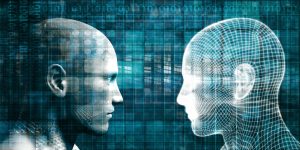 Psychologists will be the primary arbiters of bias in AI largely because of their own strength and training in ethics. They have the expertise and the experience to assess impacts of AI tools on various populations. Not only that, but they have the skillset required to mitigate those harms and advise both AI engineers and decision makers who are making the calls about when and how to use those tools.
Psychologists will be the primary arbiters of bias in AI largely because of their own strength and training in ethics. They have the expertise and the experience to assess impacts of AI tools on various populations. Not only that, but they have the skillset required to mitigate those harms and advise both AI engineers and decision makers who are making the calls about when and how to use those tools.
They’ll have to weigh what they learn in extensive PsyD coursework in philosophy and ethical decision-making with the new abilities and potential harms of AI systems. That’s particularly true in therapeutic uses. Not only will the actual ability of AI therapy and the outcomes be important, but the process they engage in will have to match the highest standards of the profession of psychology.
Psychologists Will Also Address Larger Mental Health Issues That Come With Widespread AI Adoption
 The onslaught of AI in society overall will bring some new challenges and issues to the field of psychology. It’s an open question exactly how people will react to machines that have advanced thinking abilities. Chatbots are entertaining today; within a decade, they could be downright frightening, a kind of alien intelligence suddenly loose in society.
The onslaught of AI in society overall will bring some new challenges and issues to the field of psychology. It’s an open question exactly how people will react to machines that have advanced thinking abilities. Chatbots are entertaining today; within a decade, they could be downright frightening, a kind of alien intelligence suddenly loose in society.
There are also inevitable social upheavals that will come with the widespread use of AI to replace human jobs. It’s not clear how the economics and job market will react to such efficient agents jumping in almost overnight. There’s no precedent. Psychologists will have a lot of studies to conduct and probably a lot of counseling to deliver when the trend really gets going.
A Look at AI Careers With a PsyD
All of these new possibilities that come with AI translate into a lot of new career possibilities for PsyD graduates. Not only are all the traditional roles in psychology on the table, but the evolving demands of AI development and industry implementation will call for the insight and expertise developed by doctors of psychology.
– Helping Train New Generations of AI
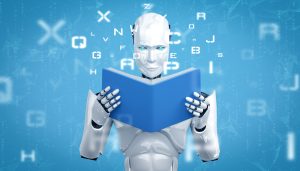 Many psychologists are already finding jobs at cutting-edge AI development companies. With the understanding they have of the innermost layers of human cognitive and reasoning ability, they are crucial members of teams attempting to build AI that can perform at the same level.
Many psychologists are already finding jobs at cutting-edge AI development companies. With the understanding they have of the innermost layers of human cognitive and reasoning ability, they are crucial members of teams attempting to build AI that can perform at the same level.
Even the most advanced AI today still has problems relating to people. A human toddler has greater ability to perceive and understand expression of human attention and emotion than the most highly-trained neural network.
Psychologists help AI engineers and programmers understand the gaps they are seeing in AI cognition and to come up with new techniques to improve those abilities. By helping them understand how humans see and interpret the world, psychologists can make them more life-like and responsive.
– Specializing in AI-Assisted Therapy
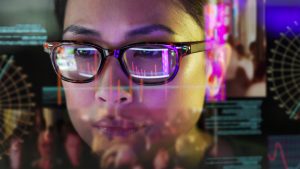 Within the wheelhouse of traditional psychological practice, new areas of expertise will open up for specialists in administering and overseeing AI therapy. Large corporations unveiling AI chat therapy tools will need to employ psychologists both to help develop those programs and to backstop and monitor them.
Within the wheelhouse of traditional psychological practice, new areas of expertise will open up for specialists in administering and overseeing AI therapy. Large corporations unveiling AI chat therapy tools will need to employ psychologists both to help develop those programs and to backstop and monitor them.
Of course, new needs in psychological practice will probably emerge with the development of smart machines in general. Already, a contingent of AI doomers feels despair and fear at the possibility of an AI-fueled genocide. Psychologists will have to shepherd people through similar fears and more grounded ones regarding job losses and lack of purpose.
– Filling the Need for AI Ethical Consultation
 That kind of practice will be mirrored on the other side of the table by psychologists who consult with large organizations and governments about the impacts of AI both on individuals and on society. They’ll have to help develop rules to ensure that people are not unduly harmed by the deployment of AI in the world.
That kind of practice will be mirrored on the other side of the table by psychologists who consult with large organizations and governments about the impacts of AI both on individuals and on society. They’ll have to help develop rules to ensure that people are not unduly harmed by the deployment of AI in the world.
Naturally, organizations that are using AI for purposes that may lead to ethical or privacy abuses will need psychologists to consult on the proper ways to guard against those issues.
– Uncovering and Interpreting Research Data From AI Sources
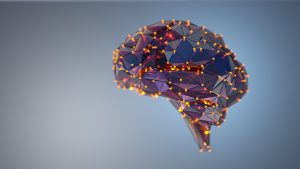 A whole new world of psychological research opportunities is opening up with AI. Both experimental and data mining uses will reveal new insights and discoveries relating to human thought and behavior.
A whole new world of psychological research opportunities is opening up with AI. Both experimental and data mining uses will reveal new insights and discoveries relating to human thought and behavior.
But AI is revolutionizing research in many other industries, too. In many cases, while the AI can offer unprecedented views into the behavior and interests of people and society, what it can’t do is understand them.
For that, psychologists are going to be a necessary part of many types of broad AI research efforts. They will help leaders and executives make sense of findings and interpret results into actionable data.
What Will Be the Role of Psychology in Artificial Intelligence in the Future?
No one really knows what the AI-powered future will look like. That’s an exciting opportunity for psychologists, though. A new era of human development is about to be unveiled. Like past revolutions, it’s bound to provide new perspectives and new data on age-old quandaries, like:
- The evolution and root of human consciousness
- The processes of intellect and reasoning
- The basis of emotion and how it is processed
Psychologists will do more than just explore such questions, however. They’ll also be part of teams that are guiding how society handles the answers. They’ll play a fundamental role in how AI is trained and used.
In time, there may even be jobs for AI psychologists, who evaluate and treat machine intelligences with mental issues.
That means that the kind of psychology education that comes with a PsyD is more important now than ever.
